Old European lore talks about hanging bundles of chives in the home to ward off evil spirits. Well, chives do chase away colds, which can feel pretty evil sometimes. Check out the many chives health benefits and how to use them.
Chives Health Benefits
Chives are in the same family as onions and garlic which are well known for their therapeutic actions. Like garlic, chives contain the antiseptic properties of sulfur which exterminates bugs that don’t belong in your body. Chives boast many of the same healing benefits celebrated in garlic, some of the most notable are circulation stimulation and lowering blood pressure.
Chives contain plenty of vitamins A and C and are a powerful antioxidant. Antioxidant herbs help protect your cells from damage caused by unstable molecules known as free radicals. Free radical damage can contribute to heart disease, cancer and pre-mature aging. Eating chives helps to mop up the free radical cells in your body that can be caused by stress, pesticides and environmental toxins.
“Chives are an anti-cold and flu remedy that can easily be included in everyday meals. “
Chives are an anti-cold and flu remedy that can easily be included in everyday meals. Take advantage of the abundance of antibacterial properties and use chives in excess during cold and flu season.
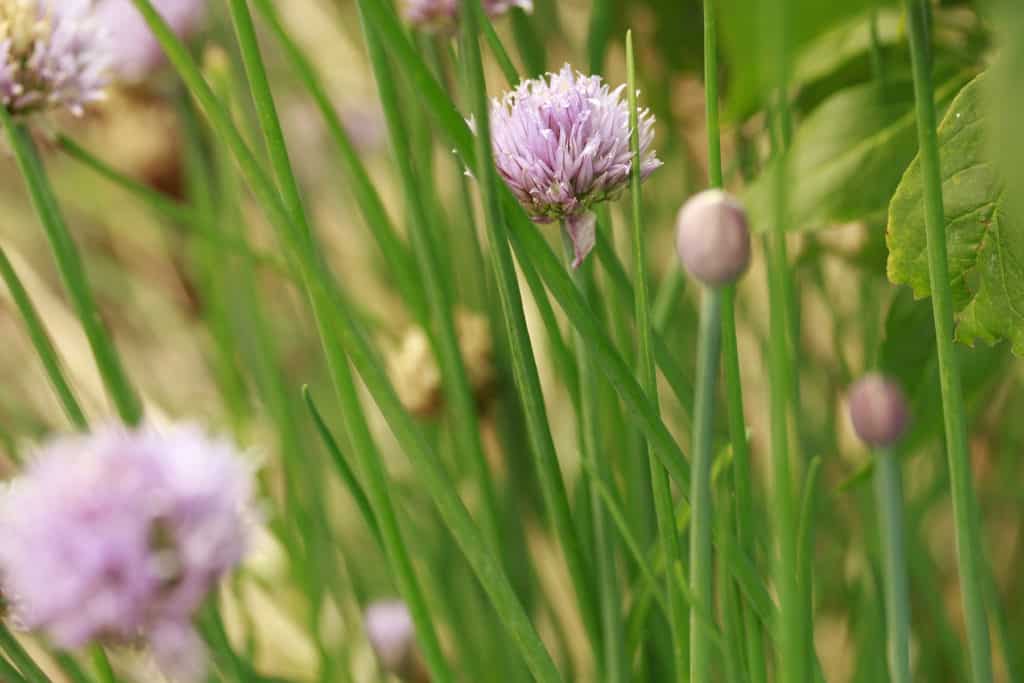
How to Use Chives
My husband reserves chives for that special place on top of the sour cream and butter in his baked potato, but they are one of the most prolific herbs in my garden so I put them into everything. Their peppery-onion flavor adds a zing to just about any savory type dish.
Often dried chives take the place of salt in our dinner. Their high vitamin C content is another reason to use them as a general condiment.
The secret to getting the highest chives health benefits is to avoid cooking them. Add chopped chives to vinegar, oil, ghee, pesto, dried sprinkles or garnish your food with fresh or dried chives just before eating. We have a condiment shaker on the kitchen table that contains dried chives; it is a delicious sprinkle for eggs and salads.
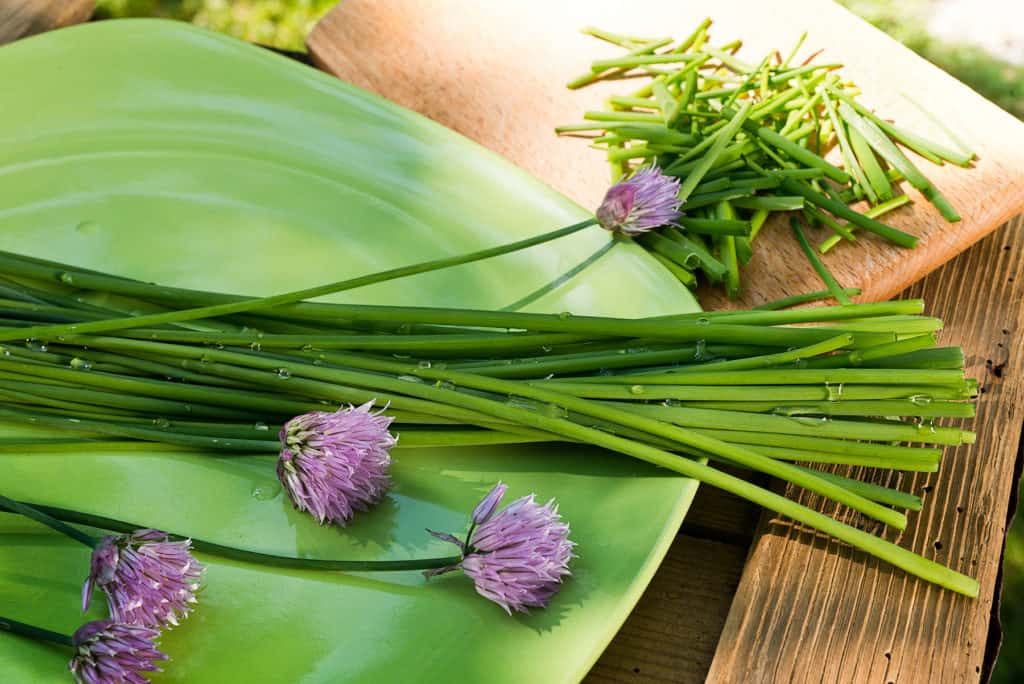
Gardening Tips
Chives like full sun or partial shade and well-drained soil with moderate watering. Plant chives in the early spring at about 10 inches apart. If you plant them in rich, compost soil, they will grow faster than if you plant them in poor soil. They tolerate poor soil, but just don’t produce as quickly.
Chives tolerate frost and once established they just grow and grow and eventually you have to divide the clumps and plant them in other areas of the garden. This herb can sometimes take its time getting started, but it is worth the wait, because fresh chives are a cooks’ companion. You can get chives seeds here.
You Might Also Like…
3 Recipes for Using Homegrown Chives
Sesame Chive Salad Sprinkle
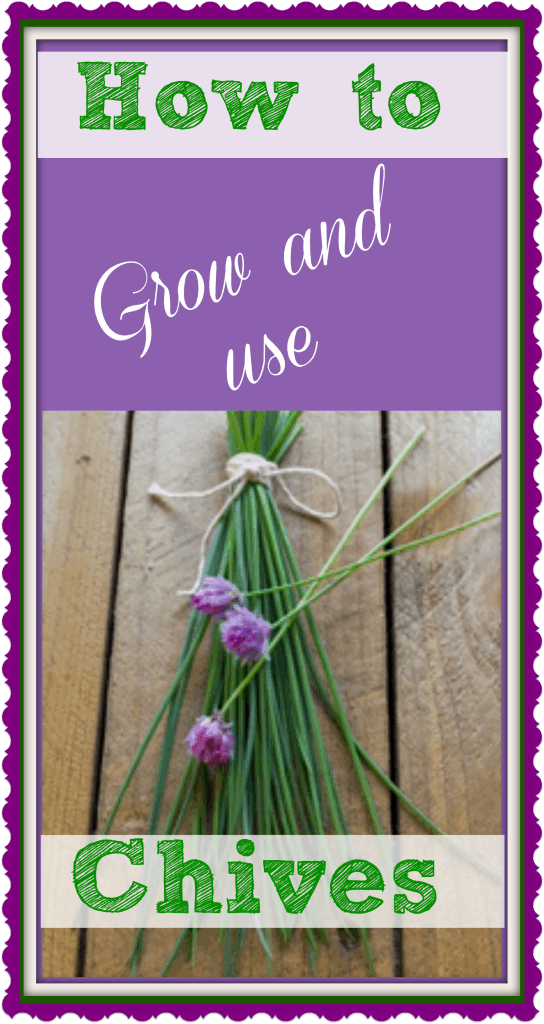

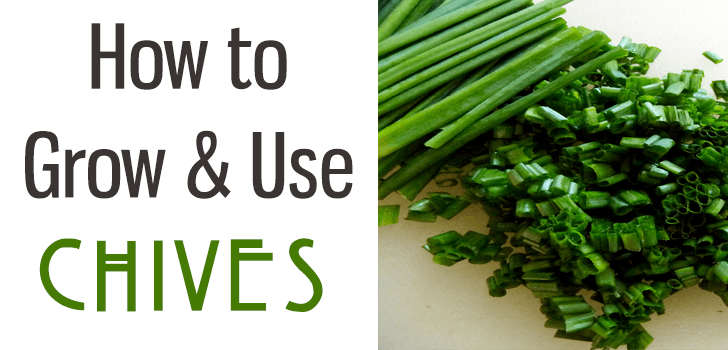
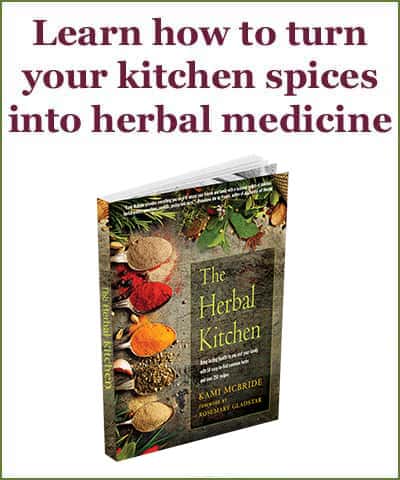
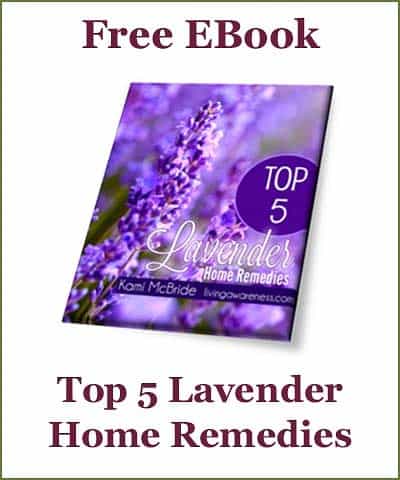

I have chives plant it is beautiful I enjoy and just this year I shared some with a friend and told another I would share some of the plant with her. I love to see it when it blooms so pretty
My daughter heard chives are no longer edible after tey blossom…is this true?
HI Jacqueline.
well, the stalk that goes into bloom becomes a big flower, that is also edible. The whole plant never goes into flower all at once. So you will have some of it in flower and some of it without flowers, so you can still eat the green parts that aren’t flowering and then eat the flowers on the leaves that have gone to flower……Let me know what resource she is talking about……
I love using herbs in my cooking. Recently, I repotted a friend’s chive plant, and it is doing very well. I’m going to use it in lieu of green onions.
[…] DIY gardening and preparing fresh herbs from your home harvest. How-to-Grow-and-Use-Chives livingawareness.c… […]
I love using herbs in and on everything I would like to learn more about how to use herbs ever where in my life. The kitchen and the medicine cabinet. Thanks for the help and info.
My pleasure, i am glad you are enjoying it! Make sure you are signed up to my newsletter, i have a great course about ready to start!